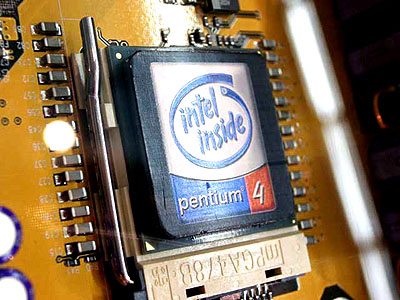Volgens bronnen van News.com heeft Intel besloten om de release van de Northwood processor uit te stellen tot begin 2002. Aanvankelijk was het de bedoeling om de nieuwe Northwood P4 core eind dit jaar op de markt te brengen in kloksnelheden tot 2,2GHz. De vertraging heeft volgens News.com louter commerciële en logistieke redenenen. Eventuele productieproblemen zouden niet aan de orde zijn. Intel vreest dat het de Northwood processor niet in voldoende volume kan leveren voor het vakantieseizoen in december. Tijdens deze periode worden door de eindejaarsverkopen traditioneel hoge omzetten gehaald. Een slechte leverbaarheid van de 2,2GHz Pentium 4 zou consumenten kunnen doen besluiten om hun aankopen tot 2002 uit te stellen.
De vertraagde release betekent goed nieuws voor AMD. Insiders verwachten dat AMD binnen afzienbare tijd een 1,6GHz Athlon XP 1900+ op de markt brengt. De XP 1900+ kan het vlaggetje van snelste x86 processor terugbrengen in het AMD kamp, voor zover dat niet reeds het geval is met de Athlon XP 1800+. De situatie zal zich wederom in het voordeel keren van Intel zodra de Northwood uitkomt. Volgens AnandTech is de Northwood core mede dankzij een grotere L2 cache van 512KB ongeveer 10 procent sneller dan de huidige Pentium 4. Dankzij deze verbeteringen en de hogere kloksnelheid van 2,2GHz zal Intel waarschijnlijk opnieuw gekroond worden tot performance-koning:
The 2002 commercial release of Intel's fastest chip isn't because of manufacturing problems, the sources said. Instead, Intel is trying to avoid potential glitches during the holiday-shopping season. A substantial segment of the consumer market gravitates toward computers with the speediest chips. If the volume of new PCs with the high-performance chips is small, consumers could postpone buying until next year.[...] Juggling release dates in light of the holiday season isn't new. In 1996, Intel decided to postpone the release of the first Pentium MMX chips from late that year to early 1997. However, press coverage of the MMX had been rather extensive. Executives and analysts later blamed the relatively slow holiday buying of 1996 to a desire on the part of consumers to wait until January to buy PCs with the new chips. Since then, Intel has tackled the problem by shuttling major chip releases to September or the first week of January.
 |

:strip_exif()/i/1003212030.jpg?f=thumbmedium)
:strip_exif()/i/1019768446.jpg?f=thumbmedium)

:strip_exif()/i/1011896699.jpg?f=thumbmedium)